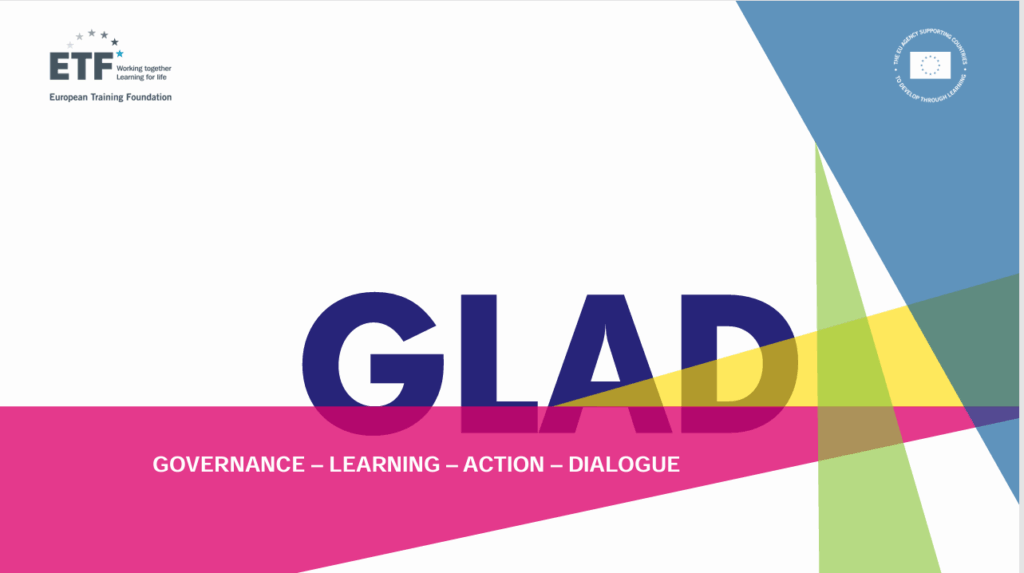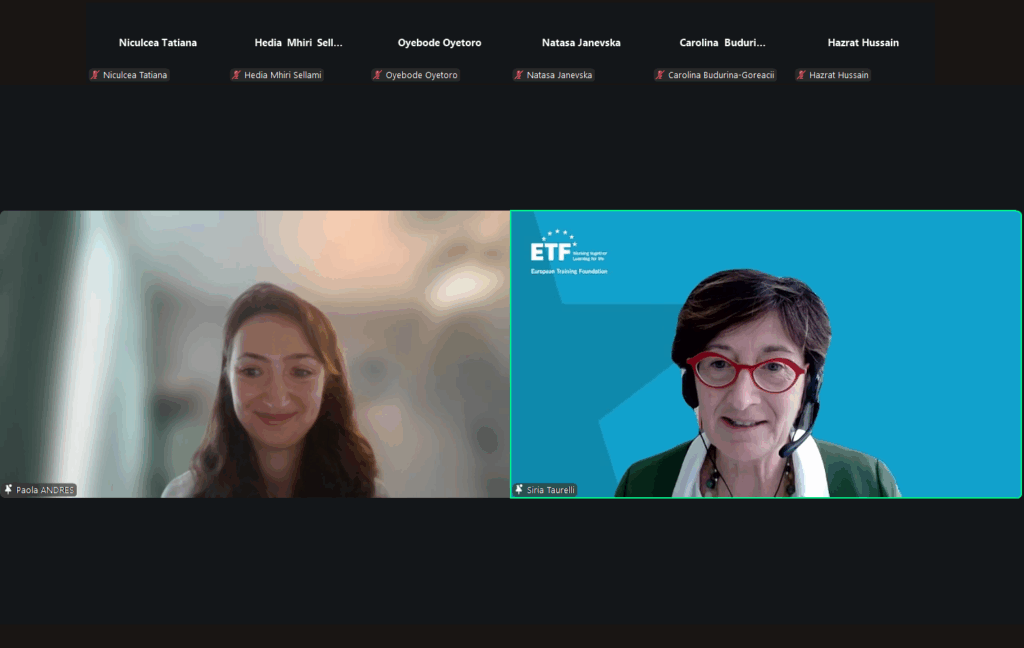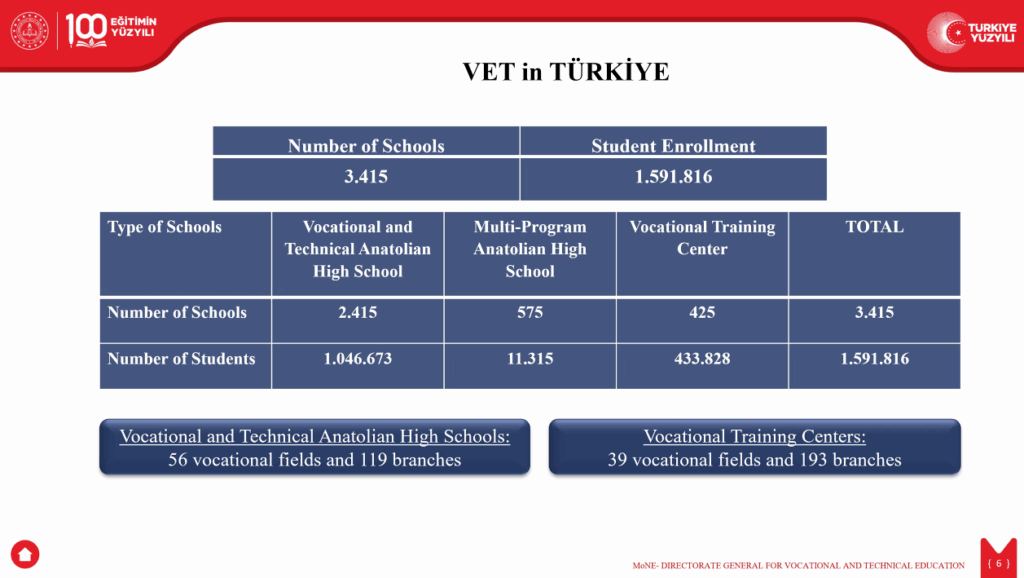EARLALL Participated in European Training Foundation’s “Union of Skills” Event
22/10/2025

On 21 October, EARLALL took part in the online event “The Union of Skills: What Implications for the Governance of Skills Systems?”, organised by the Governance Learning, Action and Dialogues (GLAD) network of the European Training Foundation (ETF).
The meeting gathered around 80 participants from across Europe and neighbouring regions, including representatives from Kosovo, Türkiye, Bosnia and Herzegovina, Georgia, Moldova, Ukraine, Serbia, Albania, and Romania.
Introducing the Union of Skills
The event presented the concept of the Union of Skills (UoS), a flagship initiative of the new European Commission mandate, announced within its first 100 days, underlining its strategic importance for the next five years.
Key messages from the presentation included:

- The Union of Skills will be central to Europe’s competitiveness, as highlighted in the Competitiveness Compass and the Clean Industrial Deal.
- It represents a radical step change in ambition and action, covering all skills, across all levels of education and learning, acquired in diverse contexts – within and beyond the EU.
- The initiative aims both to retain talent in Europe and attract talent from outside.
- It seeks to provide a unified vision, connecting action, investment, and governance – breaking silos, amplifying efforts, and reflecting the collective responsibility of all actors.
The Union of Skills addresses three fundamental challenges that currently hinder the EU’s competitiveness, as outlined in the Draghi, Letta and Niinistö reports:
- Skills shortages and gaps – Europe faces a lack of skilled graduates and vocational workers, particularly in crafts occupations critical to industry, and a decline in basic and digital skills among young people.
- The transformation speed gap – labour market needs are changing rapidly, while education systems are slow to adapt to technological advances and the green transition. There is a critical shortage of STEM skills, particularly affecting SMEs, four out of five of which report difficulties in finding qualified workers.
- Fragmented governance and skills intelligence – skills policy involves numerous actors and ministries, often resulting in fragmented policymaking. Better coordination and use of skills intelligence and forecasting are needed to match future labour market demand with supply.
Contributions from Country Representatives

Özdemir Tiflis, National Education Expert at the Turkish Ministry of National Education, presented the main features of Türkiye’s lifelong learning and VET systems. He highlighted the country’s multi-stakeholder approach involving employers, training providers, and national and international partners. Funding comes from both domestic and international sources, ensuring sustainability and innovation.
Stanislaw Drzazdżewski, representing the Polish Ministry of Education and Science, noted that many of the challenges identified in the OECD Skills Strategy align with those addressed by the Union of Skills, particularly the mobilisation of diverse actors – not only in formal but also in non-formal and informal learning.
He explained that Poland has a strong tradition of formal education, which remains dominant compared to non-formal and informal learning – a situation shared by many Central and Eastern European countries. However, Poland’s achievements are notable: it ranks first in the EU, with 95% of adults having completed upper secondary education, reflecting the strength of its formal education system.
Discussion and Next Steps
The session concluded with a discussion and Q&A, during which participants exchanged perspectives on the strategic direction of the Union of Skills and explored opportunities for collaboration within its framework.
The event once again underlined the importance of cross-country cooperation and shared governance to address Europe’s growing skills challenges and ensure that education and training systems remain fit for the future.

